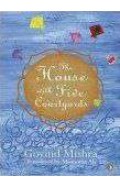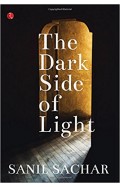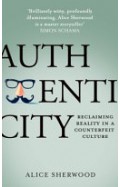The House with Five Courtyards
By: Govind Mishra
-
Rs 505.75
- Rs 595.00
- 15%
You save Rs 89.25.
Due to constant currency fluctuation, prices are subject to change with or without notice.
| Book | |
| What's in the Box? | 1 x The House with Five Courtyards |
Zubin Mehta: A Musical Journey (An Authorized Biography)
By: VOID - Bakhtiar K. Dadabhoy
Rs 892.50 Rs 1,050.00 Ex Tax :Rs 892.50
The Good Girls Revolt How the Women of week Sued their Bosses and Changed the Workplace
By: Lynn Povich
Rs 1,270.75 Rs 1,495.00 Ex Tax :Rs 1,270.75
Your Home Is a Vision Board - Harness the Secret Manifesting Power of Your Home
By: MARIE DIAMOND
Rs 4,405.50 Rs 4,895.00 Ex Tax :Rs 4,405.50
Authenticity: How economics, evolution and technology drive us to deceive – and how we can fight back
By: Alice Sherwood
Rs 1,695.75 Rs 1,995.00 Ex Tax :Rs 1,695.75
Pokémon: Sword & Shield, Vol. 7: Sword & Shield 7: Volume 7
By: Hidenori Kusaka
Rs 1,185.75 Rs 1,395.00 Ex Tax :Rs 1,185.75
Zubin Mehta: A Musical Journey (An Authorized Biography)
By: VOID - Bakhtiar K. Dadabhoy
Rs 892.50 Rs 1,050.00 Ex Tax :Rs 892.50














-120x187.jpg?q6)












-120x187.jpg?q6)



-120x187.jpg?q6)




